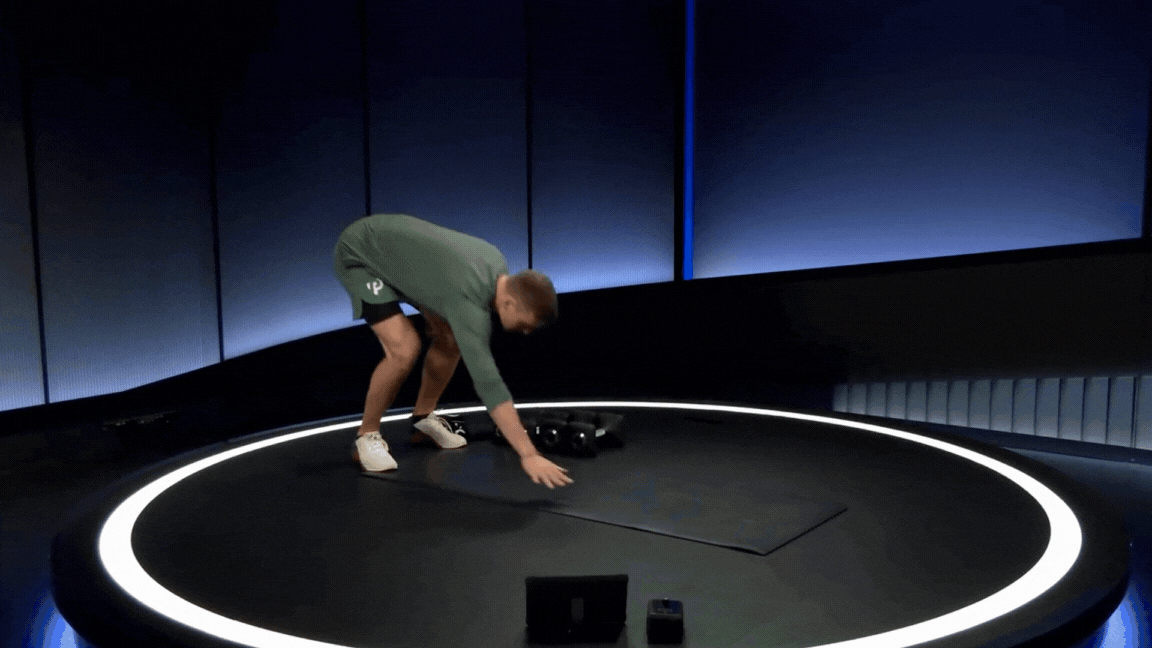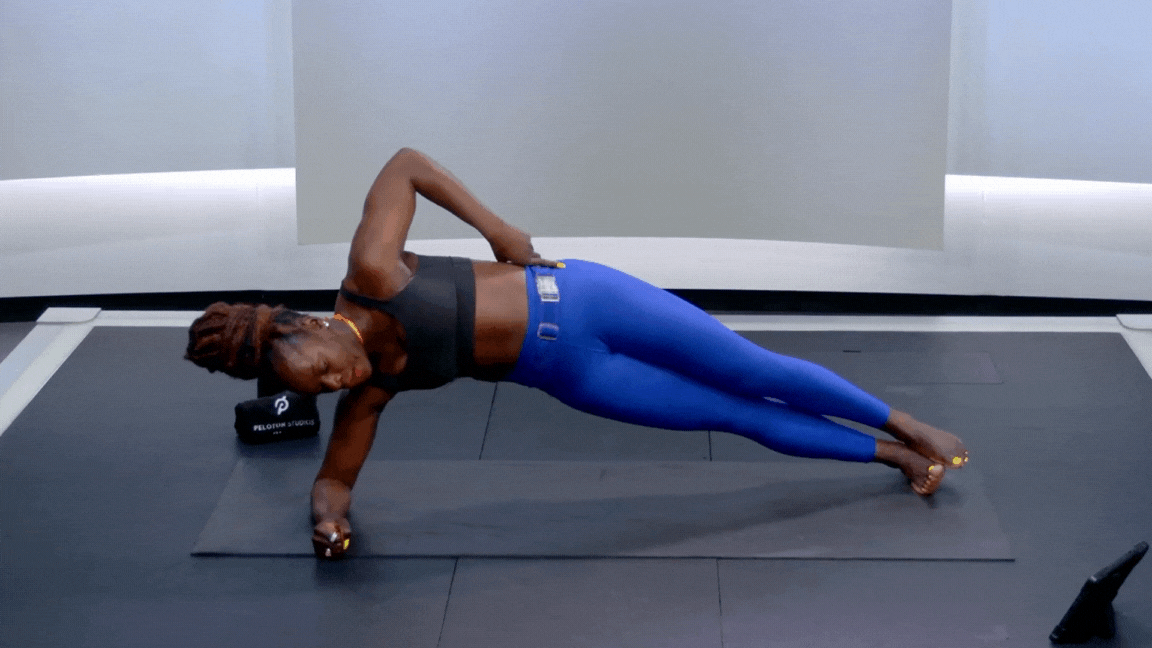
GoodLifeStudio/Getty Images
Try These 7 Exercises to Strengthen Your Lower Back
From toe taps to glute bridges, these moves require minimal to no equipment.
By Leigh Weingus•
What Are the Signs of a Weak Lower Back?
The Importance of a Strong Lower Back
7 Exercises to Strengthen Your Lower Back
When you think about strengthening specific parts of your body, your mind might go straight to your glutes, shoulders, or abs (to be fair, all three are super important!)—but it probably doesn't go to your lower back. However, a weak lower back can get in the way of your workouts, cause discomfort, and even lead to serious injuries.
The good news is that you can incorporate exercises and stretches into your fitness routine to strengthen your lower back. On top of relieving some types of pain, these moves can also support your core and the rest of your body. So, how can you gauge your lower back strength? And what can you do to start improving it? Here’s everything you need to know.
What Are the Signs of a Weak Lower Back?
According to Peloton instructor Joslyn Thompson Rule, the top signs of a weak lower back are general feelings of weakness, discomfort, stiffness, or pain while moving around. She says that in some cases, simple movements can alleviate lower back pain and discomfort, but those experiencing chronic back pain may need to consult with a medical professional.
Ryan LeFever, PT, a co-owner of TFI Physical Therapy, says he looks for specific signs that may indicate weakness in the lower back. These include:
Being unable to sit upright in a chair without your hips dropping toward the back of the seat
Standing with too much of an arch in your lower back
Having limited ability to rotate your body left and right
Being unable to hinge from your hips and keep your lower back in a neutral position when you bend down to pick something up
Experiencing tightness in your hamstrings and hip flexors, which could result from an underactivate core
To “test” your lower back strength, LeFever suggests watching yourself do an overhead squat. “To do it, place your feet shoulder width apart,” he says. “Put your hands and arms straight up over your head. Slowly lower down into a squat as deep as you can. Do this in front of a mirror and look at what your arms are doing and what your lower back is doing. If your trunk leans forward and your arms fall forward and you can't keep them over your head, you have functional weakness in the core and the lower back. If your lower back arches and does not stay in a neutral straight position, you have weakness and instability in the lower back and the core.”
That said, the true cause of lower back weakness can be difficult to pinpoint on your own. “Ideally, the lower back functions as a unit with the rest of the core muscles, and sometimes it can be difficult to isolate,” she explains. “A physical therapist would be able to look at how the core muscles are working together and indicate any compensation patterns—if there are any—but this is not always easy to do by yourself.”

The Importance of a Strong Lower Back
Regardless of whether your activity of choice is low-impact, like walking, or more intense, like weight training, it's important to have a strong lower back in order to load-bear safely, according to Joslyn. "The lower back makes up part of the core musculature and needs to be able to withstand the forces put upon it, whether that be gravity or heavier weights,” she says.
The lower back and core are indeed connected; The core—a group of muscles that’s made up of the pelvic floor, abdominals, erector spinae, and diaphragm—supports and stabilizes the spine. “Ideally, they function in unison, but when they don't, either through inefficient form in movement or posture, some muscles can overcompensate for others, which can lead to discomfort, pain, or injury further down the line," Joslyn says.
7 Exercises to Strengthen Your Lower Back
So, what are some concrete ways to help strengthen your lower back? As a general rule, Joslyn says it’s important to move quite a bit throughout the day. “Not staying in one position for too long can help all of your muscles in general,” she says. “Little movement ‘snacks’ throughout the day are great.”
There are also more targeted exercises you can do to improve your lower back strength.

1. Dead Bug
This move helps control front-to-back pelvic tilting and can also improve core strength.
1. Lay on your back with your knees and hips bent at 90 degrees. Raise your arms straight up toward the ceiling.
2. Take a deep inhale. As you exhale, extend your right arm behind your head and hover it an inch above the floor. At the same time, extend your left leg so that it’s straight and hovers an inch above the floor.
3. Inhale and return to the starting position.
4. Repeat for two sets of three to five reps before switching to the other side.
Muscles worked: core, hip flexors, lower back
2. Toe Taps
The Peloton instructor also recommends mixing in some toe taps. As a variation of dead bug, these are great for building abdominal strength and controlling front-to-back pelvic tilting.
1. Lay on your back with your knees and hips bent at 90 degrees. Place your hands on the sides of your rib cage.
2. Take a deep inhale, feeling your rib cage expand. As you exhale, keep your right knee bent at 90 degrees as you lower your right leg and tap your right toes on the ground.
3. Inhale and return to the starting position.
4. Repeat for two sets of six to 10 breaths, alternating sides.
Muscles worked: core

3. Glute Bridges
Glute bridges strengthen your lower back and the muscles around it (such as your hamstrings and glutes), hence Joslyn’s suggestion to incorporate them into your routine.
1. Lay on your back with your legs bent and your feet flat on the floor.
2. Take a deep inhale. As you exhale, lift your hips toward the ceiling, driving through the middle of your feet. Ensure that you’re not overarching through your lower back.
3. Lower down to the starting position.
4. Repeat for two to three sets of six to eight reps.
Muscles worked: lower back, glutes, hamstrings

4. World’s Greatest Stretch
This stretch has a lot of components, but as Joslyn points out, it’s great for mobilization (particularly for opening up your hips and spine).
1. Stand with your feet directly below your hips. With a soft bend in your knees, slowly reach your hands towards the ground, continuing to bend your knees if needed.
2. Walk your hands in front of you until you're in a high plank position.
3. Place your right foot on the floor outside of your right hand. Then, place your right elbow down to the floor (or as close to it as you can). Reach your right arm towards the ceiling by rotating your spine to the right.
4. Place your right hand back on the ground outside of your right foot. Then, drive your hips up and back toward the ceiling.
5. Bring your hips back down to the position outlined in step three.
6. Repeat on the opposite side for a total of three to five rounds.
5. Hamstring Stretch with Straight Leg Raise
LeFever suggests trying out this stretch, which can strengthen your hamstrings and core.
1. Lay on your back and put a towel or strap around the bottom of your foot.
2. Keeping your knee mostly straight, stretch your hamstring on one side.
3. Once you feel a good stretch, tighten your core and flatten your lower back onto the ground.
4. Slowly lift your other leg (keeping your knee straight) to meet your outstretched leg.
5. Gently lower your leg without the towel or band back toward the floor, keeping your back flat and your stomach tight.

6. Side Plank
Side plank is another one of LeFever’s recommendations due to its ability to strengthen your core and stabilize your spine.
1. Lay on your side with your elbow underneath you. Straighten your legs and stack them on top of each other.
2. Slowly raise your hip that’s in contact with the ground so that it’s in the air. Keep your spine straight and your ankles, knees, hips, shoulders, and head in one straight line.
3. Hold this position for 30 seconds and repeat it three times on each side.
Muscles worked: core, shoulders, hips
7. Founder Exercise
LeFever rounds out the list with a move that can strengthen your legs, hips, and back.
1. Stand with your back flat and your arms straight down by your sides.
2. Hinge forward at your hips and press your arms back. Create tension in your lower back in this position by slightly arching your back.
3. Raise your arms straight up until they’re in line with your ears. Hold this position.
4. Lower your hands and head down toward the floor. Hold this position.
5. Slide your hands up to your shins. Hold before returning to the original hinged position.
Muscles worked: legs, hips, and back

Peloton App
Access thousands of classes with no equipment needed.
If you suspect your lower back is on the weaker side, doing these exercises on a regular basis can help you strengthen it and prevent future injuries. Keep in mind that each person's body is different, so don't be afraid to play around with various modifications to see what feels good for you. If your back pain persists, consider consulting with a medical professional, such as a physical therapist.
This content is for informational and educational purposes only and does not constitute individualized advice. It is not intended to replace professional medical evaluation, diagnosis, or treatment. Seek the advice of your physician for questions you may have regarding your health or a medical condition. If you are having a medical emergency, call your physician or 911 immediately.
This content is for informational and educational purposes only and does not constitute individualized advice. It is not intended to replace professional medical evaluation, diagnosis, or treatment. Seek the advice of your physician for questions you may have regarding your health or a medical condition. If you are having a medical emergency, call your physician or 911 immediately.
Level up your inbox.
Subscribe for a weekly dose of fitness, plus the latest promos, launches, and events.
By providing your email address, you agree to receive marketing communications from Peloton.
For more about how we use your information, see our Privacy Policy.


